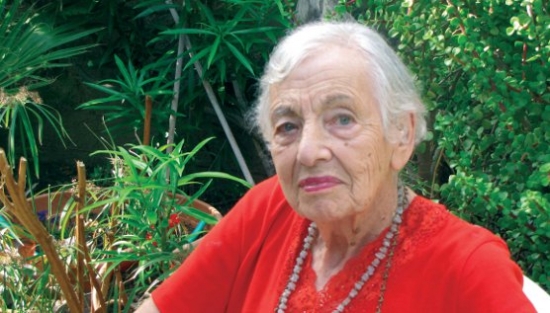
I was in the ATS (Auxilliary Territorial Service) for four and a half years (1942-46). a banned area for civilians because of the Nazi V 1's or 'doodle bugs', unmanned drones that cut flying before dropping their bombs.
Getting on my huge truck was like climbing up the footplate of an engine. My friend, Beryl, and I were the only ones to get an open cabin Leyland Lynx so it was freezing cold driving in the icy winter of 1943. We were stationed in a requisitioned house in Ipswich.
Before D-Day we were told to leave our trucks in a certain place, and to pick them up next morning for an unrevealed assignment. We then found them loaded with immense metal structures. Here lies the story of Mulberry Harbour, though we didn't know it then. My truck had the highest load with a huge metal hook on top. Our destination was near Portsmouth, way down south. Our trucks were governed down to 30 mph with dimmed lights so that was a long way. Three men soldiers were with us and led the way.
The first incident was the hook zipping telegraph wires along the way. I don't remember how we dealt with that! By the afternoon it had begun to rain and visibility was poor. I was now bringing up the rear, and followed the other three as they drove under a low bridge. There was a horrible grinding noise as the hook on my load scored a deep groove in the underside of the bridge and the whole load canted sideways, damaging the tail board, and fell down, making a hole in the road.
My friend Beryl stayed with me whilst passing servicemen made rude remarks about ATS drivers! The other drivers proceeded onwards. Help arrived and my huge load was hoisted back. However, Beryl hooted me again from the rear as we drove on, as the two sections of the load were parting company, up and down. That necessitated another stop at a military camp for further repairs.
And then I lost Beryl as I turned left at a fork in the road and she drove straight on. It must have been dark by now. I reached our destination shortly, but she, poor girl, aged barely 21, lacked the address, and phoned our HQ in Ipswich. So now my accident was known and I could be put on charge. However, I sent out a party to find her, and some soldiers mended the tail board of my truck. Beryl was found and duly refreshed at the camp. We drove back to Ipswich without further mishap.
It was much later that we learned that we had transported sections of Mulberry Harbour, Churchill's solution against all odds, for a floating harbour, to be used for the Second Front. "Impossible", they said. "Do it," he said, and it was done, floated across to Normandy on D Day. Troops and vast amounts of equipment were hidden all over Britain, and it was amazing that the Germans had never found out. But of course they had lost their air power and satellites were in the future.
Years later, I saw a film on TV about Mulberry Harbour, and I thought I could recognize some sections, but not the hook!
Early in 1944, I volunteered for overseas and was stationed in an ambulance unit in Brussels, then Holland, back to Ghent, and right after the war ended, driving a Bedford 30 cwt in snow and ice in Germany. But that is another story.
 Israel: Reclaiming the Narrative - A Review
Israel: Reclaiming the Narrative - A Review ESRA Outing to Aida at Masada
ESRA Outing to Aida at Masada 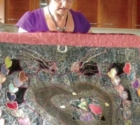 Coffee Group for Immigrants enters 5th year
Coffee Group for Immigrants enters 5th year (302x450)-1451381711.jpg) Odeon Oscar
Odeon Oscar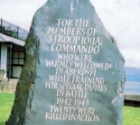 The Jewish Connection
The Jewish Connection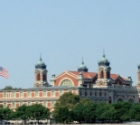 ellis island
ellis island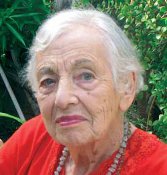 Hazel Agami
Hazel Agami